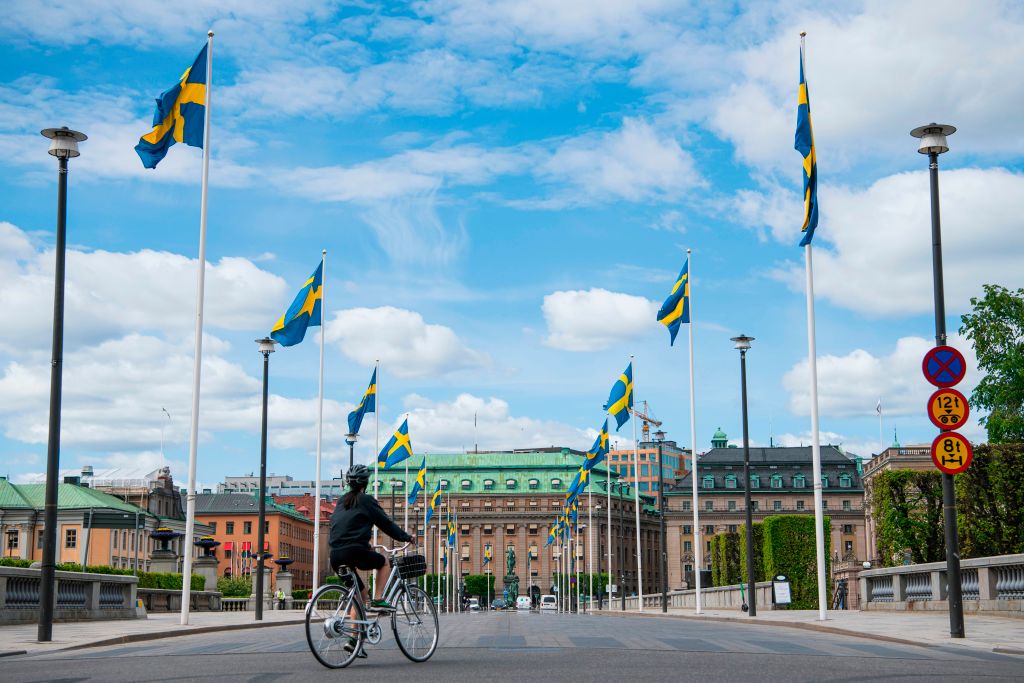Sweden has released growth figures for the second quarter — a contraction of 8.6 percent — and two narratives are circulating. The first is that the Swedish experiment has failed spectacularly, resulting in both a higher death toll than its Scandinavian counterparts as well as a collapsed economy. The second is that Sweden has been vindicated, taking a much less severe economic hit than the EU’s average and in a better position to recover as well. Which is the fairer assessment?
Sweden has indeed taken an economic beating despite never instigating a full lockdown. Its population’s change in behavior (adopting social distancing and heading indoors despite this not being dictated by formal rules), combined with every other major economy around them shutting down has spiraled the country into a recession, along with the rest of Europe. Sweden’s economic downturn also goes much deeper than other countries, like Hong Kong, which also avoided a full lockdown (though arguably much of Hong Kong’s economic pain has already been felt, having contracted 5.5 percent in Q1 and now into its fourth quarter of negative growth).

However, Sweden has fared substantially better than the EU average of 11.9 percent, with France’s economy down 13.8 percent, Italy down 12.4 percent and Spain down a staggering 18.5 percent. The difference of a 3.3 percent contraction between Sweden and the average is hardly splitting hairs, let alone the gap between Sweden and Spain. We’re talking billions of euros disappearing out of economies, the effects of which could last for years as countries struggle to grow the their way back to pre-COVID levels.
Sweden is also thought to be in a decent position to kickstart the lagging parts of its economy again. Oxford Economics notes that economic activity is picking up fast, forecasting Sweden to ‘still likely to be amongst best of a bad bunch this year.’ Still, there are still a series of outstanding questions that need to be answered before we can meaningfully compare Sweden’s economy (and death toll) to other countries. Q2 data for Denmark and Finland is expected next week (not to mention the UK’s) which will provide a clearer comparison between countries that chose to lock down hard and Sweden, which didn’t.
[special_offer]
But another unknown factor stands out even more, one which isn’t getting a lot of attention as Q2 data is published. The latest economic data is a result of the first wave of COVID-19 and indeed the first set of lockdowns. What is completely unknown is how economies will hold up in the wake of a second wave or another round of lockdowns. In Britain, the first scenarios are being published to account for a second wave, which factor in better tracking and tracing abilities, along with local and regional lockdowns instead of a national one. Still, the result is some form of W, showing another major contraction, dubbed an ‘economic Armageddon’ by a government figure in Katy Balls’s column for The Spectator’s UK edition last week.
No doubt quick opinions will be formed this week and next as we get a fuller picture of economic contractions across Europe during the height of lockdown. However, if lockdown isn’t a one-off, but rather a common feature of our ‘new normal’, that will undoubtably impact our assessment of what proved economically sustainable. The longer this goes on, the more likely it is Sweden’s approach will take the lead.
This article was originally published onThe Spectator’s UK website.


















